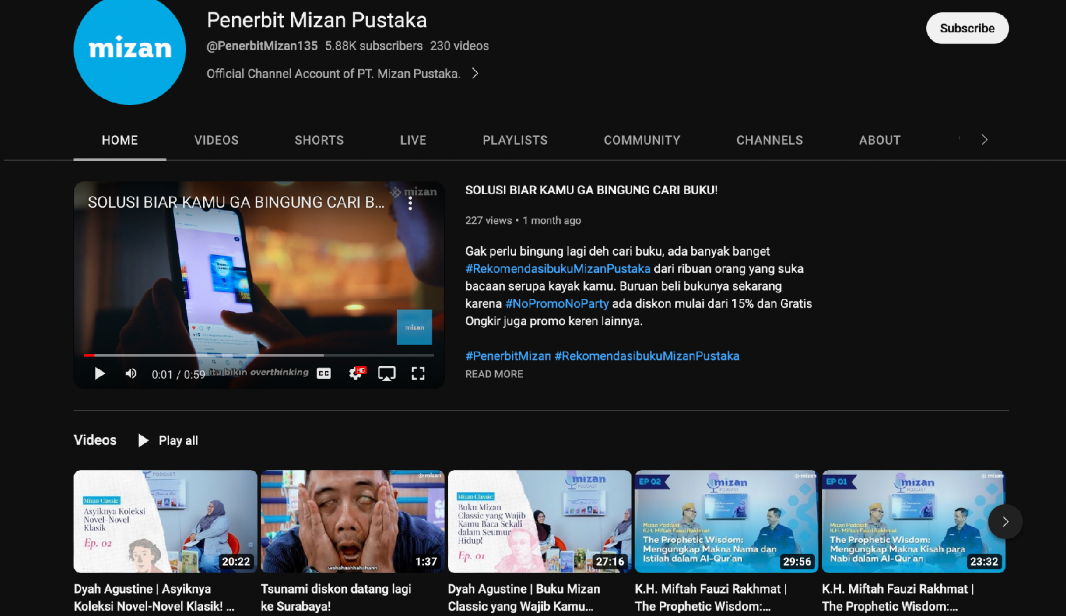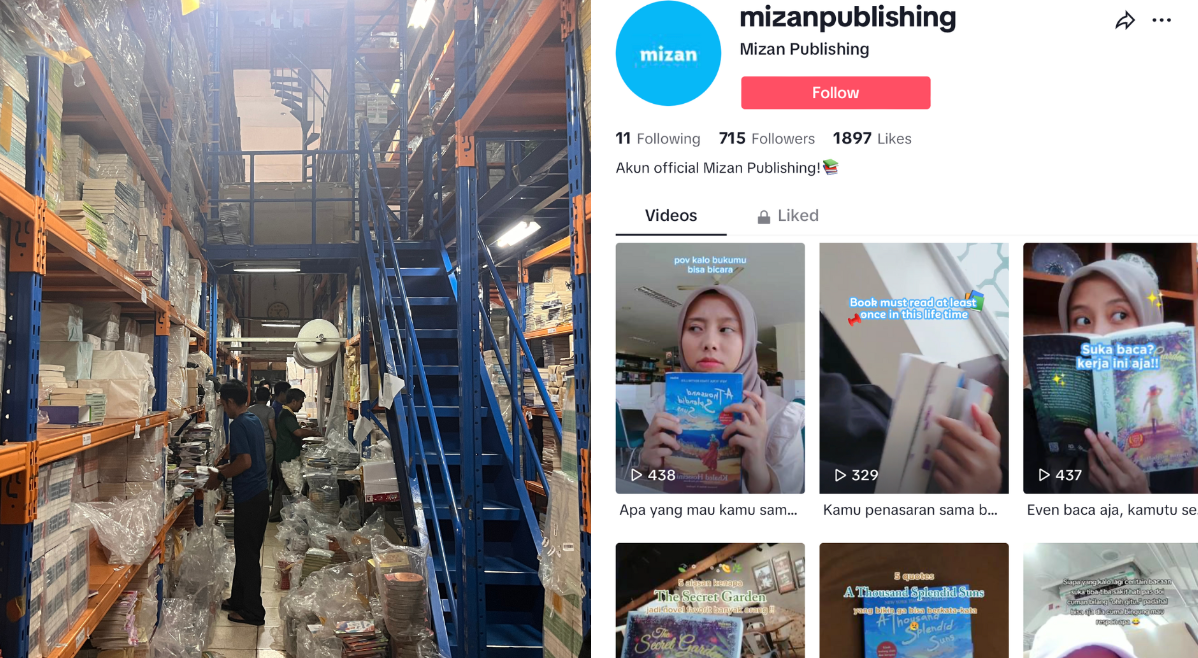Written by Ektada Bilhadi
As a longstanding fixture of the Indonesian book-publishing industry, Mizan made a name for itself starting in the early 1980’s, primarily through its publications that centered around Islamic literature, which was meant to cater to the emerging Muslim middle class. Founded in 1983, the Bandung-based company started out by publishing books on Islamic studies and was notably one of the first publishers to publish works made by Indonesian Muslim intellectuals, such as Nurcholish Madjid.
Though the company is perhaps best identified with covering this niche of the market, alongside its development, the company has also continued to diversify its publishing content, branching into areas and genres that allows it to cover a greater share of the reader base. Their first attempt at expansion started in the early nineties when they began to publish lighter, non-scholarly works that could be consumed by younger audiences, primarily children, but they were still centered around the Islamic themes and values that Mizan made a name itself with. It was really after the turn of the century that their diversification really became apparent, with books such as the coming- of-age superhit novel Laskar Pelangi and the teen romance Dilan: Dia adalah Dilanku
1990 that catered to a younger, much wider audience, that became some of Mizan’s best-selling works during this time period.
Interesting as this steady growth of diversification may be in the story of this company’s development, there is another shift that has taken place in terms of the company’s direction that is just as important. Outside of expanding to more and more genres to cater to a wider audience, in recent years, Mizan has also changed its approach to how they choose to reach said audiences.
With the onset of the COVID-19 pandemic and major book retailers being locked down, book publishers were left with their main revenue stream being essentially shut down. In response to this, in the early months of the pandemic, Mizan began to fully shift its focus to the digital marketplace, primarily marketing and selling their books through their official stores on online shopping sites.

What began as an adaptation to the crippling of their main source of revenue, turned to a revelation as to where Mizan felt it needed to take the company in the future. Evidently, the prominence of the online marketplace for book publishers was not just a passing trend, as today, Mizan’s distribution center rushes to ship out hundreds of books by the day, not just to the major retailers of old that have reopened since the repealing of lockdown regulations, but to the ever-expanding online marketplace, where customers have flocked in greater numbers since the pandemic.
Right beside the storage units that stock their inventory of books, is a room full of employees glued to their screens, monitoring social media analytics, creating TikToks and Instagram stories, and there is even a small recording studio for them to livestream and market books in their collection that go on sale on these online shopping applications.

This shift to digitalization has not been limited to the distribution and marketing of their products, but some of the products that Mizan creates itself are fully catered towards the digital space, producing podcasts and videos to be published on sites such as YouTube.
So significant is this shift in terms of the direction in which the company is being steered, that one of the editors at Mizan, Esti Budihabsari stated that it “no longer really considers itself as a book publishing company, rather a content creation company”. This shift was echoed by another editor, Panji Haryadi who even deemed it necessary as “the company would not have survived, had it not shifted to the digital space”.
The constant presence of the internet and social media in our everyday lives marks how the world today is just as much digital as it is physical, likewise the digitalization of one of the titans of Indonesian book-publishing is a sign for all those in the corporate space that they either need to get with the times or get left behind.


Incredible points. Sound arguments. Keep up the amazing work.
исчезнуть во сне, пропала жена во сне сонник выходить замуж незамужней, если во сне выходишь замуж
будучи замужем дана имя происхождение,
имя дана по церковному матрас во сне исламский сонник, сонник ватный матрас 22
22 на часах значение в любви,
22 22 гадание на часах